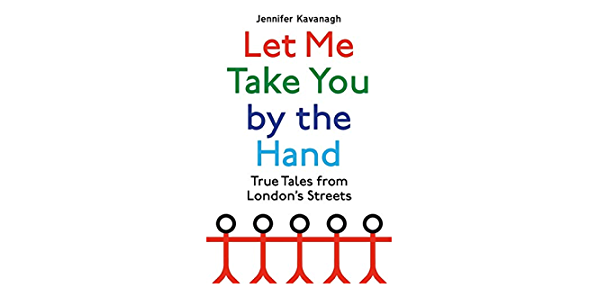Post
BOOK REVIEW | Let Me Take You By The Hand
7 Aug 2022
Let Me Take You by the Hand: True Tales from London's Streets
Jennifer Kavanagh
Reviewed by Jessica Cargill Thompson
In 1850, Henry Mayhew began publishing his intricate vignettes of Victorian street life. These Morning Chronicle columns went on to become the seminal London Labour and the London Poor whose micro- interviews with the city’s molecatchers, street entertainers, sweatshop workers, costermongers and mudlarks sit alongside Dickens as the go-to reference point as a portrait of 19th century London.
In Let Me Take You By The Hand Jennifer Kavanagh leads us through the streets of 21st century London with Mayhew as her guide. En route she draws out of the shadows the people who have become such a familiar part of the streetscape that they are overlooked as part of the furniture.
Everyone from market traders and cycle couriers to asylum seekers, beggars, and even drug dealers are given a platform to tell their backstories and motivations. Their situations are humanised and assumptions put to one side. “Like Mayhew, I am not giving answers, just an ear”, writes Kavanagh, “with an invitation to let go of our preconceptions, not least about what we consider lousy jobs and our assumptions that those doing them must be unhappy”.
Thus we meet, among a cast of many: John the watch repairer, who has been observing the comings and goings of Piccadilly Circus tube station from his bird hide of a booth for the past 25 years; Jane, whose family had been running Syd’s Coffee Stall in Shoreditch for generations but was finally calling it a day; Easton, the Jamaican poet, who lives on the streets, constantly being moved on, operating outside the system since his claim for asylum was refused; JJ, the south London drug dealer, who is “not fearful of shit now. I want the money. Simple” ; and the manager of a homeless shelter for women who highlights the darkness and dangers that consume the streets at night: “People who live in London don’t even know what goes on” he says.
Interviews took place between 2018 and 2020, which means that the book accidentally became a portrait of a city struggling with the socio- economic impacts of COVID-19 lockdown. It highlights the precarity of an increasing number of people’s lives as they navigate the gig economy, becoming increasingly detached from state support.
Let Me Take You By the Hand is positioned in dialogue with Mayhew, often pausing to compare how the capital today differs from its Victorian counterpart, which in many cases, less than one might think. But it is part of a wider conversation that includes Sukhdev Sandhu’s Night Haunts; Ben Judah’s This is London; Jonathan Raban’s Soft City; and the journalistic portraits of Londoners found in Spitalfields Life, Time Out and the Londonist.
However, where Mayhew’s work is a collection of colourful vignettes, the experience of reading Kavanagh is of a methodologically rigorous field journal in which justifications of the process often intrude on the personal stories. The reader is rushed through statistical context and made aware of the procedural back-and-forth with the interviewer. For a more engaging layperson’s read the subjects could have been left to tell their stories and the rest decluttered into footnotes. A highly impressive and undoubtedly valuable piece of sociological reference nonetheless.
Mayhew can be read for free online via Project Gutenberg: www.gutenberg.org/ebooks/55998
Jessica Cargill Thompson is an Associate with community engagement consultancy and urban design practice Soundings/Fluid
